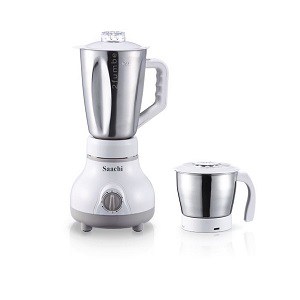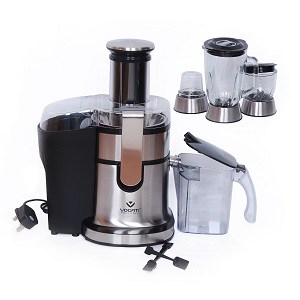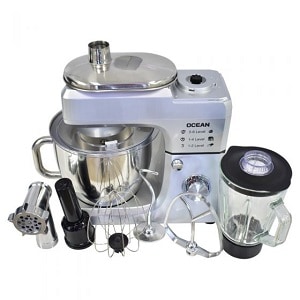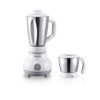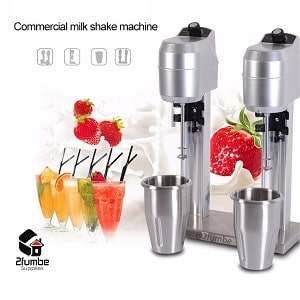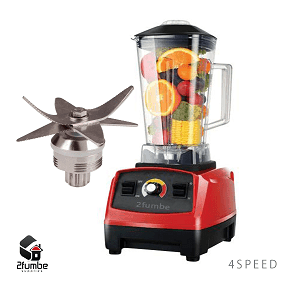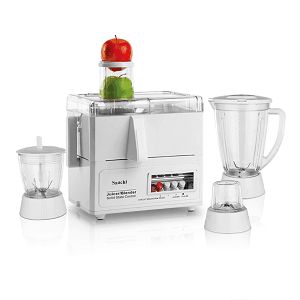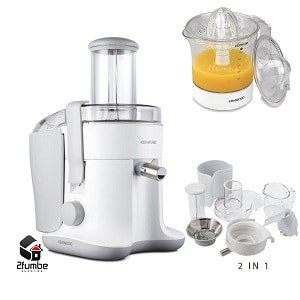A Stainless Steel Blender grinder is a kitchen and laboratory appliance used to mix, purée, or emulsify food and other substances. A Stainless Steel Blender consists of a blender jar and grinder (steel) with a rotating metal blade at the bottom, powered by an electric motor in the base. Some powerful models can also crush ice. The newer immersion blender configuration has a motor on top connected by a shaft to a rotating blade at the bottom, which can be used with any container.
Different blenders have different functions and features but product testing indicates that many blenders, even less expensive ones, are useful for meeting many consumer needs.
Features which consumers consider when purchasing a blender include the following:
i. large visible measurement mark
ii. ease of use
iii. low noise during usage
iv. power usage (typically 300-1000 watts)
v. ease of cleaning
vi. option for quick “pulse” blending
Stainless Steel Blender grinder use a 1-2 liters (4-8 cups) blending container made of stainless steel. Stainless steel is preferred for its looks, but limits visibility of the food as it is blended. Countertop blenders typically offer 3-16 speed settings, but having more choices in speed settings is not an indication of increased utility for all users.
In cases where the blades are removable, the container should have an o-ring or gasket between the body of the container and the base to seal the container and prevent the contents from leaking. The blending container is generally shaped in a way that encourages material to circulate through the blades, rather than simply spinning around.
The container rests upon a base that contains a motor for turning the blade assembly and has controls on its surface. Most modern blenders offer a number of possible speeds. Low-powered blenders require the addition of some liquid to operate correctly. In these blenders, the liquid helps move the solids around the jar, bringing them in contact with the blades. The blades create a whirlpool effect which moves solids from top to bottom, ensuring even contact with the blade. This creates a homogeneous mixture. High-powered blenders are capable of milling grains and crushing ice without such assistance.

